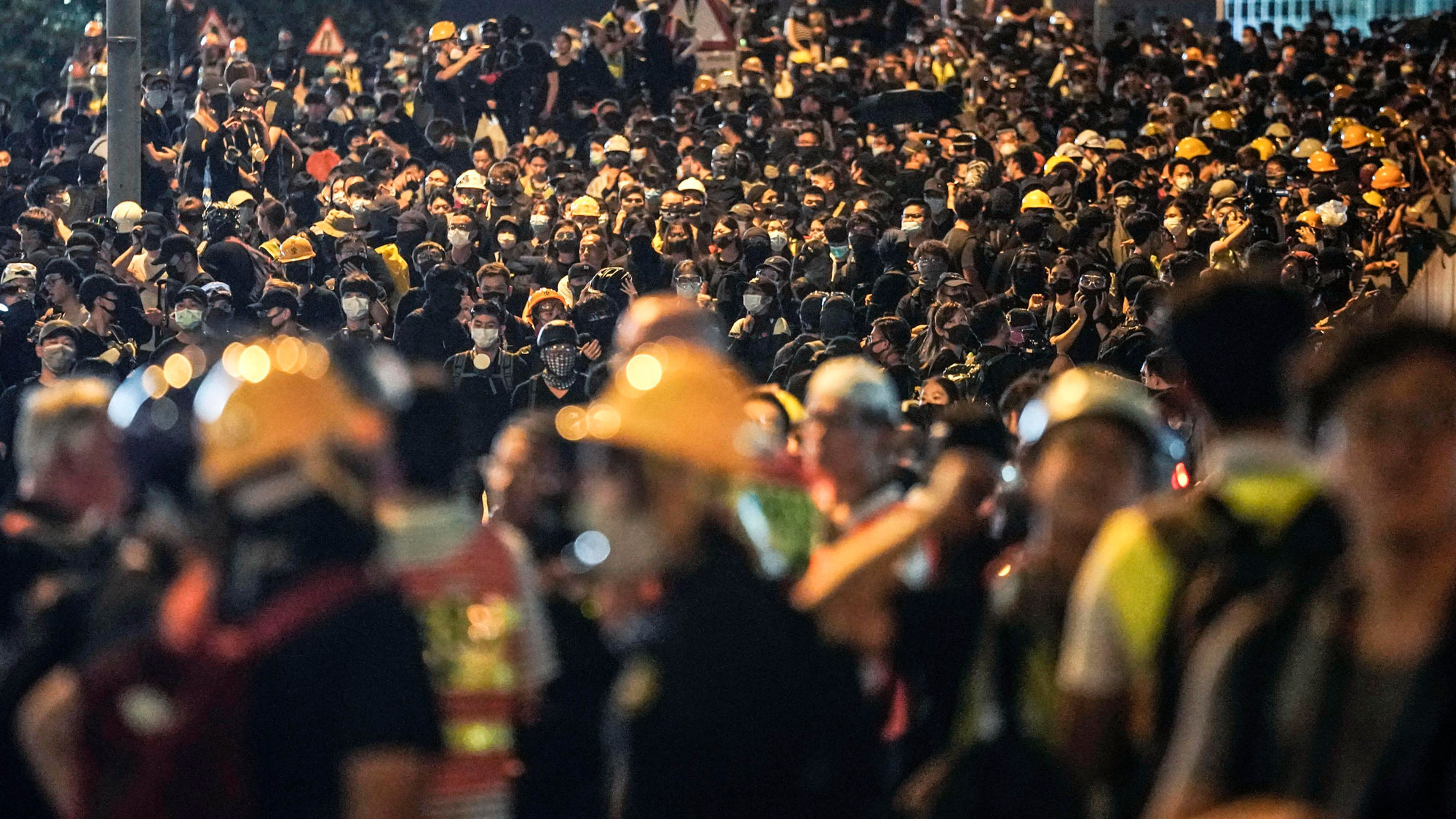Facebook and Twitter are cracking down on Chinese propaganda accounts

Between them, the companies have suspended nearly 1,000 accounts believed to be part of a Chinese government operation to sow disinformation about the protests in Hong Kong.
A coordinated campaign: Twitter said it had uncovered a “significant state-backed information operation” aimed at undermining the legitimacy and political positions of the Hong Kong protest movement on the ground. It suspended 936 accounts that had been behaving in a coordinated manner to amplify messages related to the protests. However, Twitter said these merely represented the most active of a larger, spammy network of approximately 200,000 accounts, which were proactively suspended as they were created. Most of the accounts were using VPNs, since Twitter is blocked in China.
On a smaller scale: Facebook removed seven pages, three groups, and five accounts traced back to China, after Twitter alerted them that they were “individuals associated with the Chinese government” posing as news organizations. Examples of these accounts can be found in a blog post here.
A new policy: After it was flagged that Twitter had been running adverts paid for by Xinhua, China’s official news agency, that discredited the Hong Kong protesters, Twitter announced it will no longer accept advertising from state-controlled news organizations. Independent public broadcasters like the BBC are exempt.
Isn’t it ironic: Facebook hasn’t followed suit, however. It still allows ads from foreign state-controlled media, even though it isn’t allowed to show US government propaganda to Americans. The Smith-Mundt Act, often called a “domestic propaganda ban,” largely prevents the US government from targeting its own citizens with the content it creates for other countries (like Voice of America). But the law isn’t always followed. Last July, Syracuse University researcher Jennifer Grygiel found that US-funded broadcasters bought Facebook ads targeted at certain Americans. A House investigation later found at least 860 violations of the law.
Additional reporting from Angela Chen
Keep Reading
Most Popular
Large language models can do jaw-dropping things. But nobody knows exactly why.
And that's a problem. Figuring it out is one of the biggest scientific puzzles of our time and a crucial step towards controlling more powerful future models.
How scientists traced a mysterious covid case back to six toilets
When wastewater surveillance turns into a hunt for a single infected individual, the ethics get tricky.
The problem with plug-in hybrids? Their drivers.
Plug-in hybrids are often sold as a transition to EVs, but new data from Europe shows we’re still underestimating the emissions they produce.
Stay connected
Get the latest updates from
MIT Technology Review
Discover special offers, top stories, upcoming events, and more.